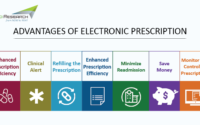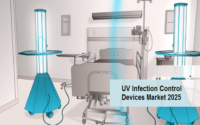Precision Medicine is All Rage Lately
The healthcare industry is undergoing a major transformation with scientific breakthroughs and technological advancements changing the way we diagnose and treat diseases. Health and life sciences organizations are leveraging diverse data collected through advanced technologies and tools for personalizing medical outcomes, which has led to the rising application of precision medicine for various interventions. Precision medicine tools and technologies such as molecular diagnostics, molecular imaging, big data, artificial intelligence, pharmaco-omics, etc. are helping alleviate unnecessary suffering that can result from the current one-size-fits-all approach. Precision medicine can help eliminate ineffective treatment plans at outset based on data insights and select treatments based on the genomic understanding of patient’s diseases.
Precision Medicine for Chronic Diseases
Chronic diseases affect millions of people around the world and the number is expected to rise exponentially in the future. Since chronic diseases are biologically complex and heterogenous from how they present over time with different symptoms, there have not been many developments or innovations in terms of diagnosis and treatments of the metabolic disorders. Improving patient outcomes require targeting treatment to specific person based on their health conditions and genetic morbidities. However, precision medicine approach can help to uncover knowledge through important disease insights that will enable one to identify novel drug targets with high probability of success, identify biomarkers to characterize patients into subgroups, support design of better clinical trials, and develop diagnostic test to guide treatment in the real world.
Precision Medicine for Oncology
Nearly 1.5% of the population and 20% of patients with advanced cancer carry the risk of pathogenic variant. Understanding the genomic basis for each patient’s diseases can help select right therapies to manage patient’s cancer, which is the essence of applied precision medicine. Comprehensive genomic profiling uses single assay to assess relevant cancer biomarkers and find the best treatment possible to improve survival rate and cost of care. Assessing hereditary cancer risks can also help support prevention to reduce likelihood of developing cancer and susceptibility. Risk-stratified breast cancer screening could result in 31% less fatalities. GE Healthcare is advancing the future of medicine with innovative suite of precision, predictive, and prescriptive technologies to improve detection and outcomes for cancer patients.
Precision Medicine for Personalized Diet
Just like every person responds to medications, they also respond differently to the same foods. Many research studies indicate that glycemic index is not sufficient enough to predict how foods will affect an individual’s blood glucose levels. However, feeding data and other personal information can help design custom diets based on the individual’s predicted blood-sugar responses. Customized diets include more of what an individual likes to eat as per their body goals, metabolism, weight, and other factors. Compared to diets designed by dieticians, precision medicines can help millions of people living with diabetes or prediabetes.
Key players operating in the global precision medicine market such as Amgen Inc., F. Hoffman La Roche, Novartis AG, Bayer AG, Merck & Co., Eli Lily and Company, Pfizer Inc., Abbott Laboratories, and others are trying to increase their product pipeline by filing new molecule applications or finding existing molecules. According to TechSci Research report on “Global Precision Medicine Market By Products & Services (Precision Medicine Platforms, Precision Medicine Tools, Precision Medicine Services), By Technology (Big Data Analytics, Artificial Intelligence, Bioinformatics, Whole Genome Sequencing, Companion Diagnostics, NGS, Others), By Application (Oncology, Cardiology, Respiratory, Neurology, Immunology, Others), By End User (Pharmaceutical and Biotechnology Companies, Healthcare IT, Diagnostic Companies, Clinical Research Organization, Research Institutes), By Region, Competition Forecast & Opportunities, 2027”, the global precision medicine market is expected to register growth at the rate nearly 11% during the forecast period. The market growth can be attributed to the growing research & development expenditures across different countries and rising importance of personalized medicines.
Contact
Mr. Ken Mathews
708 Third Avenue,
Manhattan, NY,
New York – 10017
Tel: +1-646-360-1656
Email: [email protected]
Website: https://www.techsciresearch.com



